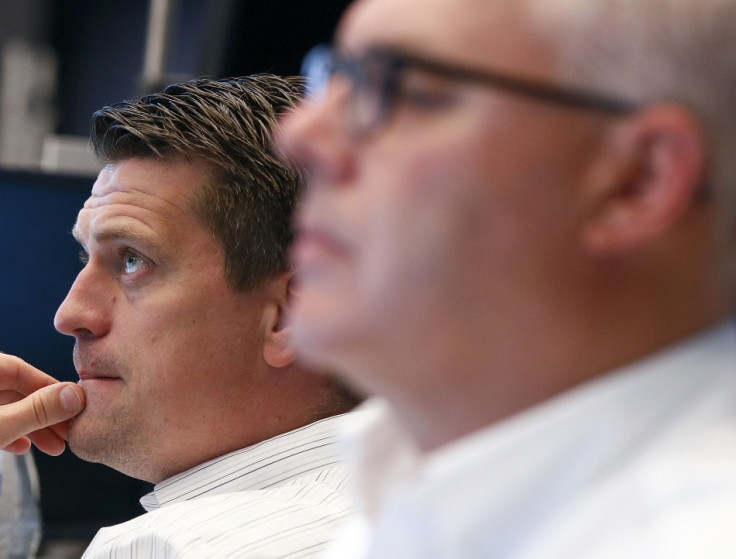European Markets Down as Investors Await ECB Bank Stress Test Details

European markets opened lower on 23 October, and continued trading lower thereafter, as market players braced themselves for the release of the details of the European Central Bank's proposed stress tests for eurozone lenders.
The Stoxx Europe 600 index opened 0.5% lower to 319.45.
Britain's FTSE 100 and Germany's DAX 30 opened 0.4% lower.
France's CAC 40 opened 0.5% lower.
Spain's IBEX 35 was trading 1.44% lower after opening lower.
Italy's FTSE MIB was trading 1.01% lower after opening lower.
The ECB will specify how it would diagnose the health of banks and details are expected throughout the day.
The ECB will publish a list of approximately 130 eurozone banks which it will supervise directly from November 2014. These details are part of the eurozone's ongoing mission to find ways to repair Europe's fragile financial system and return it to a path of economic growth. .
Market participants in the UK will be tracking the minutes of the Bank of England's (BoE) recent monetary policy meeting, where it left interest rates unchanged at record lows. The minutes could provide hints as to when the BoE could hike rates, given that the British economic recovery has gathered momentum.
In company news, British American Tobacco reported a 3.5% hike in Group revenue for the nine months of 2013.
Online fashion retailer Asos reported a 23% increase in profit in the year to 31 August, on the back of strong sales in the UK and abroad.
PSA Peugeot Citroen reported a 3.7% drop in revenue to 12.1bn ($16.7bn) for the July-September third quarter.
Heineken, the world's third largest brewer, cut its full-year profit outlook on a sharp drop in beer sales in eastern Europe, alongside lower sales in large African markets and in Brazil.
Swedish banks Nordea and Handelsbanken have reported third quarter earnings.
Elsewhere, Rabobank is on the cusp of being fined $1bn by US and UK authorities for its alleged role in the manipulation of the key interbank lending rate Libor.
Rabobank , a co-operative founded in the late 19th century as a farmers' bank, received a formal request from the Dutch Ministry of Security and Justice for information linked to the ongoing probes into the bank's possible involvement in the manipulation of Libor, in October last year.
In Asia and the US
In Asia, the Japanese Nikkei finished 1.95% lower on 23 October. The Shanghai Composite finished 1.25% lower, South Korea's Kospi ended 0.99% lower and Australia's S&P/ASX finished 0.32% lower.
Earlier, markets reversed early gains and traded lower as investors took profits, after a closely watched US labour market report pointed to sluggish economic recovery in the world's largest economy.
America added 148,000 jobs in September, much lower than what analysts had forecast. Economists had predicted a gain of 180,000 jobs for the month of September.
The unemployment rate fell to 7.2%, down from 7.3% in August, according to the US Department of Labor.
The data suggests that the US economy is recovering, albeit at a very slow pace.
Market players now expect the US Federal Reserve to defer the planned reduction of its $85 billion-a-month bond-buying stimulus, to early 2014.
"For the Fed, the key takeaway from the report is likely to be that the [US] economy is in no shape to deal with the level of reduction in monetary policy stimulus," said Millan Mulraine at TD Securities in New York.
"Given the uncertainty about . . . the fallout from the government shutdown on the economy it will probably be some time before a clear picture emerges," Mulraine added, reported the Financial Times.
In China, market players blamed the heavy selling on reports that leading Chinese lenders, including Industrial and Commercial Bank of China (ICBC), had erased $3.7 billion worth of bad debt in the first half of 2013, higher than the preceding year's figure.
However, banking stocks were unaffected by the news.
"A lot of this write-off brings Chinese banks closer to a more international standard. In the past, they've put these loans further out into their non-performing portfolios rather than instead of actually writing them off so in some respects, this improves the health of these banks," said Andrew Sullivan, director of Asian Sales Trading.
Wall Street Up
On Wall Street, indices ended higher as the September jobs data suggested the Fed could defer its planned quantitative easing (QE) tapering.
The Dow finished 75.46 points higher at 15,467.66. The benchmark index is trading within 1.5% of the all-time high that it struck in September.
The S&P 500 ended 10.01 points higher at 1,754.67, surging above the 1,750 mark for the very first time.
The Nasdaq closed 9.52 higher at 3,929.57, striking a new 13-year high.
The CBOE Volatility Index (VIX), broadly regarded as the best gauge of fear in the market, ended above 13.
"US stocks closed higher after the September non-farm payroll report showed fewer than expected jobs were created, leading many market participants to believe the US Federal Reserve will continue asset purchases at its current pace well into 2014," Tim Radford, global analyst at Rivkin Securities said in a note to clients.
© Copyright IBTimes 2024. All rights reserved.







